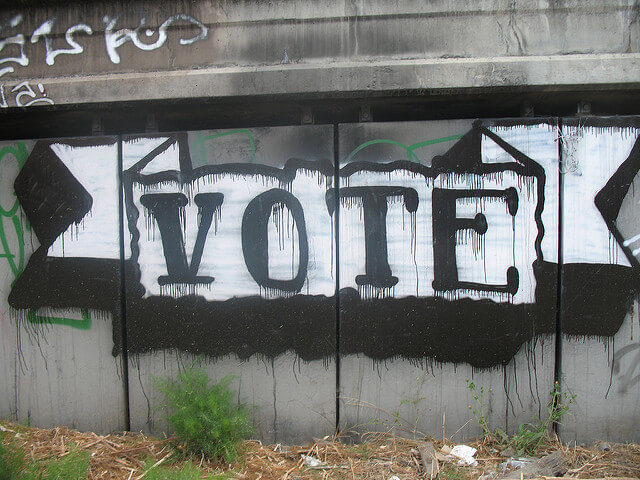Even though online voting is being considered with extreme hesitation, technological advancements are increasingly devouring the security of conventional paper based voting. Coercion has been always been an argument when considering onsite ballot casting, yet this has changed with the omnipresent cameras of smartphones. Exit polls arranged on various social media network give voters, who cast their ballot rather late, the chance to make a well informed choice, which undermines the fairness of the elections.
A considerable percentage of voters prefer to go for early postal voting, which sacrifices their potential to alter their vote in the last minute. Early postal voting also sacrifices the voters’ means of verification. Currently, several online voting algorithms aim at the very security properties that conventional paper based voting and early postal voting can guarantee less and less.
In such situation, decentralized online voting protocols offer a rather promising perspective. The need for a central authority is ommitted and the integrity and security of the voting procedure is maintained by the voters themselves.
Blockchain Based Voting Systems:
Online voting that is based on the blockchain’s consensus algorithm is increasingly being accepted by decentralization advocates. Various protocol prototypes and commercial packages have been developed , yet all of these either lack essential properties, or remain ambiguous as shown by a recent study that, presented an evaluation of the blockchain based online voting systems available today. In 2015, Zhao and Chan, presented a protocol based on a binary vote that requires a cryptocurrency deposit and funding of the winner of the polls by all voters. Transactions sent to the winner, and voter refunds, are controlled via smart contracts enforced by the decentralized network which greatly limits the ballot’s flexibility.
To my knowledge, most other blockchain based online voting systems rely on “coloured coins” which permit associating digital assets to any bitcoin address. Accordingly, ownership of an asset can be traded similarly to bitcoins and ownership can be publicly verified via tracing an asset’s successive transactions.
To formulate a blockchain based online voting protocol, every eligible voter must first own a coloured coin that represents his/her eligibility to vote. Those coins will be transferred to an address that corresponds to a specific candidate. Transactions, i.e. votes, can be verified publicly on the blockchain, yet this undermines the ballot’s secrecy, simply because coins can be traced back to the voter, who has definitely being identified during registration to receive his/her coin. However, different solutions have been proposed to render bitcoin transactions anonymous, which can guarantee the secrecy of the ballot. Moreover, ring signatures can be utilized to distribute coloured coins to voters in an anonymous manner.
Transactions, i.e. votes, will then be piled up onto blocks by voters, or miners who seek to confirm transactions. Every voter can participate in the confirmation procedure.
Conclusion:
Blockchain based online voting represents an ideal decentralized means for exercising democracy. Even though the current systems are still lacking, blockchain based voting will definitely replace the current paper based voting within the next few years.
Image from Flickr





